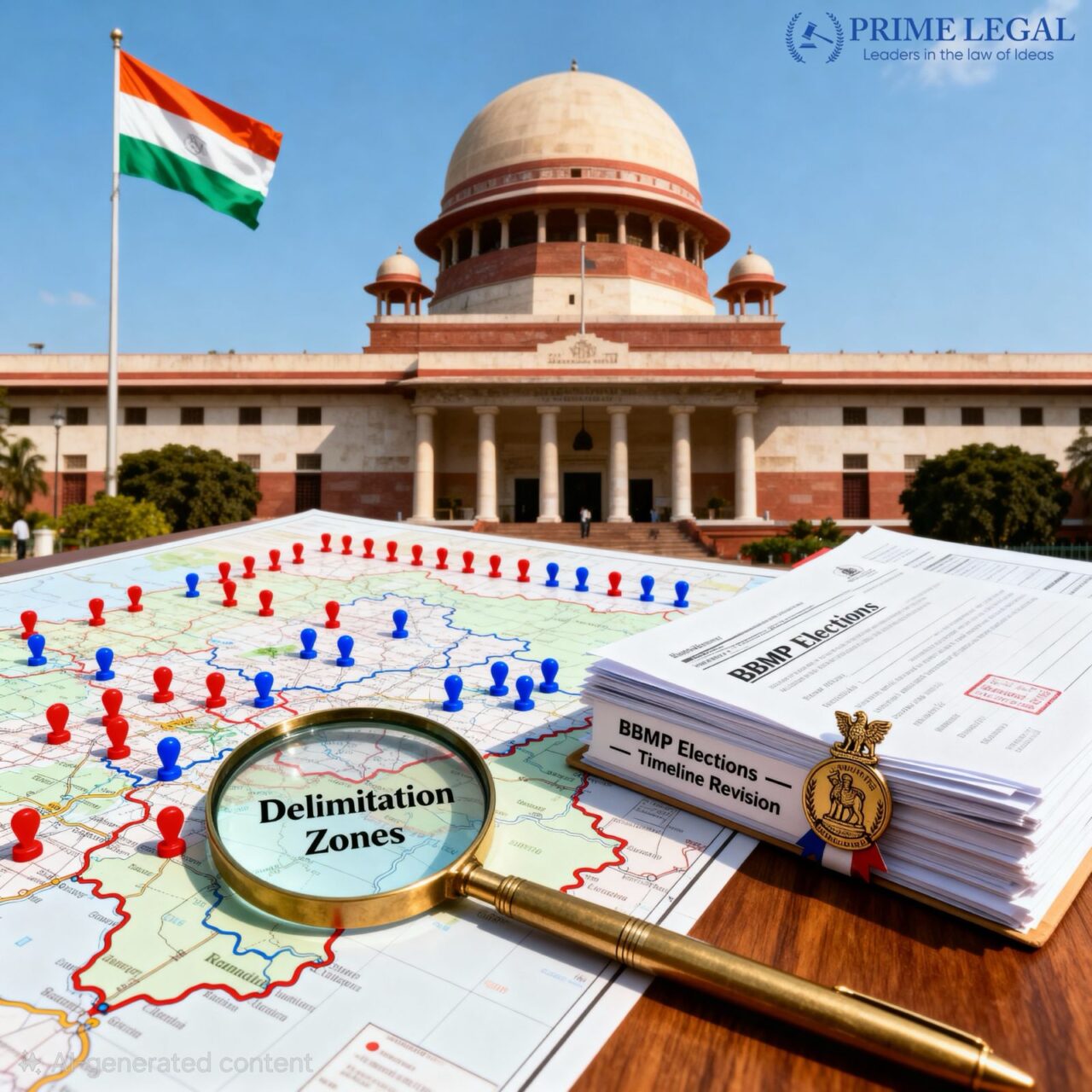BACKGROUND AND INTRODUCTION
Reinforcing the constitutional mandate to complete elections of the local self-government body on time. The Supreme Court granted permission to the State of Karnataka some additional time to complete the Bruhat Bengaluru Mahanagara Palike (BBMP) elections. The elections that was already pending for years, encounter some more delay, due to delimitation of wards and reservation of seats.
The issue stems from the expansion of BBMP wards from 198-243 seats, which requires a fresh delimitation exercise and a subsequent reservation notification. The delay in conducting such mandatory procedures prolonged the long awaited BBMP elections and the administration of BBMP through bureaucratic appointments rather than elected representatives. Petitioners argued that, the continuous delay of elections, violated part IXA of the Constitution which calls for timely municipal elections to ensure democratic stability at the urban local-body level.
KEY POINTS
- Article 243-U of the constitution clearly mandates the term of municipality for five-years from its first meeting, and that the elections must be conducted before the expiry of the term. Any kind of delay undermines democratic self-governance and deprives the citizen of elected representation.
- The State Government informed the Court that the delay was due to the necessity for completing ward delimitation based on population and finalizing reservation categories of SC/ST/OBC and women representation. The State claims the delay for the mandated procedure due to the socio-economic enumeration and caste enumeration.
- The Court held that delays cannot be indefinite and the logistical and demographic challenges cannot override constitutional mandates. The Court, still accepted the situations and permitted extension, and stated that delimitation to be completed by 15th November and the ward reservation list to be finalized by 15th December.
- The petitioners argued that continued governance of non-elected representatives weakens democratic accountability and public participation. They stated that extended bureaucratic control dilutes local democracy and denies citizens their rightful political participation.
RECENT DEVELOPMENTS
In Kishan Singh Tomar V/s Municipal Corporation of Ahemdabad city Appeal (Civil) No.5756 of 2005 stated that the conduct of elections cannot be suspended due to administrative reasons. Further in Suresh Mahajan v. State of Madhya Pradesh 2022 (2) SCC 300 wherein the Supreme Court held that local body elections must be held within every five years as constitutionally mandated under Article 243-E and 243-U, without delay. The Court clarified that processes like delimitation and completing the triple test for OBC reservation cannot be held as an excuse to delay the scheduled elections.
CONCLUSION
The Apex Court’s decision reinforces the demographic principle that local bodies must remain answerable to the people through elections. The ruling highlighted that governance through mandatory elections is not political or governmental discretion but a constitutional mandate. The State Election Commission must proceed with the election procedure once the reservation and the delimitations are finalized.
The decision is not only important for Bengaluru but across the nation because election is the most important part of a democratic country. The delay on conducting elections and indefinite bureaucratic rulings weakens the public power and hence weakens the democracy at a grass-root level.
“PRIME LEGAL is a full-service law firm that has won a National Award and has more than 20 years of experience in an array of sectors and practice areas. Prime legal falls into the category of best law firm, best lawyer, best family lawyer, best divorce lawyer, best divorce law firm, best criminal lawyer, best criminal law firm, best consumer lawyer, best civil lawyer.”
Written By- Soumita Chakraborty


